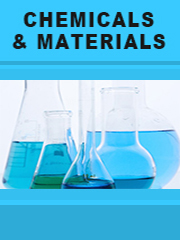Report overview
Lead chemicals are a general term for various compounds of lead. All of the major soluble lead compounds have industrial uses. Lead acetate is used as a water repellent, for mildew protection, and as a mordant for cotton dyes. Lead acetate trihydrate is used in varnishes, chrome pigments, and as an analytical reagent, and lead chloride is used in asbestos clutch or brake linings, as a catalyst, and as a flame retardant. Lead nitrate is used in the manufacture of matches and explosives, as a heat stabilizer in nylon, and as a coating on paper for photothermography. Lead subacetate is used in sugar analysis and for clarifying solutions of organic substances (HSDB 2009). The insoluble lead compounds also have a variety of uses. Lead azide and lead styphnate both are used in munitions manufacture. Lead carbonate, lead fluoride, lead fluoborate, and lead naphthenate are used as catalysts, with additional uses in the electronic and optical industries (lead fluoride), in coatings for thermographic copying (lead carbonate), as a curing agent for epoxy resins (lead fluoborate), and as a varnish drier (lead naphthenate). Lead phosphate and lead stearate both are used as stabilizers in the plastics industry. Lead iodide and lead sulfate are used in photography; lead iodide is also used in thermoelectric materials, and lead sulfate with zinc in galvanic batteries. Lead chromate is used as a pigment in paints, rubber, and plastics; lead tetraoxide is used in plasters, ointments, glazes, and varnishes.
This report aims to provide a comprehensive presentation of the global market for Lead Chemicals, with both quantitative and qualitative analysis, to help readers develop business/growth strategies, assess the market competitive situation, analyze their position in the current marketplace, and make informed business decisions regarding Lead Chemicals. This report contains market size and forecasts of Lead Chemicals in global, including the following market information:
Global Lead Chemicals Market Revenue, 2018-2023, 2024-2029, ($ millions)
Global Lead Chemicals Market Sales, 2018-2023, 2024-2029, (MT)
Global top five Lead Chemicals companies in 2022 (%)
The global Lead Chemicals market was valued at US$ 1435.3 million in 2022 and is projected to reach US$ 1554.7 million by 2029, at a CAGR of 1.1% during the forecast period. The influence of COVID-19 and the Russia-Ukraine War were considered while estimating market sizes.
Currently, Dynakrom, Hanhua Chemical, Hebei Yanxi Chemical, Dominion Colour, Aerocell and Waldies are major manufacturers of this industry. Dynakrom is a global leader. Dynakrom held a share of 1.3%.
We surveyed the Lead Chemicals manufacturers, suppliers, distributors and industry experts on this industry, involving the sales, revenue, demand, price change, product type, recent development and plan, industry trends, drivers, challenges, obstacles, and potential risks.
Total Market by Segment:
Global Lead Chemicals Market, by Type, 2018-2023, 2024-2029 ($ Millions) & (MT)
Global Lead Chemicals Market Segment Percentages, by Type, 2022 (%)
Lead Nitrate
Lead Acetate
Lead Stabilizers
Lead Chloride
Others
Global Lead Chemicals Market, by Application, 2018-2023, 2024-2029 ($ Millions) & (MT)
Global Lead Chemicals Market Segment Percentages, by Application, 2022 (%)
Mining
PVC Stabilizers
Dyes
Pigment
Others
Global Lead Chemicals Market, By Region and Country, 2018-2023, 2024-2029 ($ Millions) & (MT)
Global Lead Chemicals Market Segment Percentages, By Region and Country, 2022 (%)
North America
US
Canada
Mexico
Europe
Germany
France
U.K.
Italy
Russia
Nordic Countries
Benelux
Rest of Europe
Asia
China
Japan
South Korea
Southeast Asia
India
Rest of Asia
South America
Brazil
Argentina
Rest of South America
Middle East & Africa
Turkey
Israel
Saudi Arabia
UAE
Rest of Middle East & Africa
Competitor Analysis
The report also provides analysis of leading market participants including:
Key companies Lead Chemicals revenues in global market, 2018-2023 (Estimated), ($ millions)
Key companies Lead Chemicals revenues share in global market, 2022 (%)
Key companies Lead Chemicals sales in global market, 2018-2023 (Estimated), (MT)
Key companies Lead Chemicals sales share in global market, 2022 (%)
Further, the report presents profiles of competitors in the market, key players include:
Dynakrom
Hanhua Chemical
Hebei Yanxi Chemical
Dominion Colour
Aerocell
Waldies
5N Plus
Orica
L.S. Chemicals & Pharmaceuticals
AVA Chemicals
Cuprichem
Chloral Chemicals (India)
Flaurea Chemicals
Hammond Group
Baerlocher
Kwang Cheng
Outline of Major Chapters:
Chapter 1: Introduces the definition of Lead Chemicals, market overview.
Chapter 2: Global Lead Chemicals market size in revenue and volume.
Chapter 3: Detailed analysis of Lead Chemicals manufacturers competitive landscape, price, sales and revenue market share, latest development plan, merger, and acquisition information, etc.
Chapter 4: Provides the analysis of various market segments by type, covering the market size and development potential of each market segment, to help readers find the blue ocean market in different market segments.
Chapter 5: Provides the analysis of various market segments by application, covering the market size and development potential of each market segment, to help readers find the blue ocean market in different downstream markets.
Chapter 6: Sales of Lead Chemicals in regional level and country level. It provides a quantitative analysis of the market size and development potential of each region and its main countries and introduces the market development, future development prospects, market space of each country in the world.
Chapter 7: Provides profiles of key players, introducing the basic situation of the main companies in the market in detail, including product sales, revenue, price, gross margin, product introduction, recent development, etc.
Chapter 8: Global Lead Chemicals capacity by region & country.
Chapter 9: Introduces the market dynamics, latest developments of the market, the driving factors and restrictive factors of the market, the challenges and risks faced by manufacturers in the industry, and the analysis of relevant policies in the industry.
Chapter 10: Analysis of industrial chain, including the upstream and downstream of the industry.
Chapter 11: The main points and conclusions of the report.
